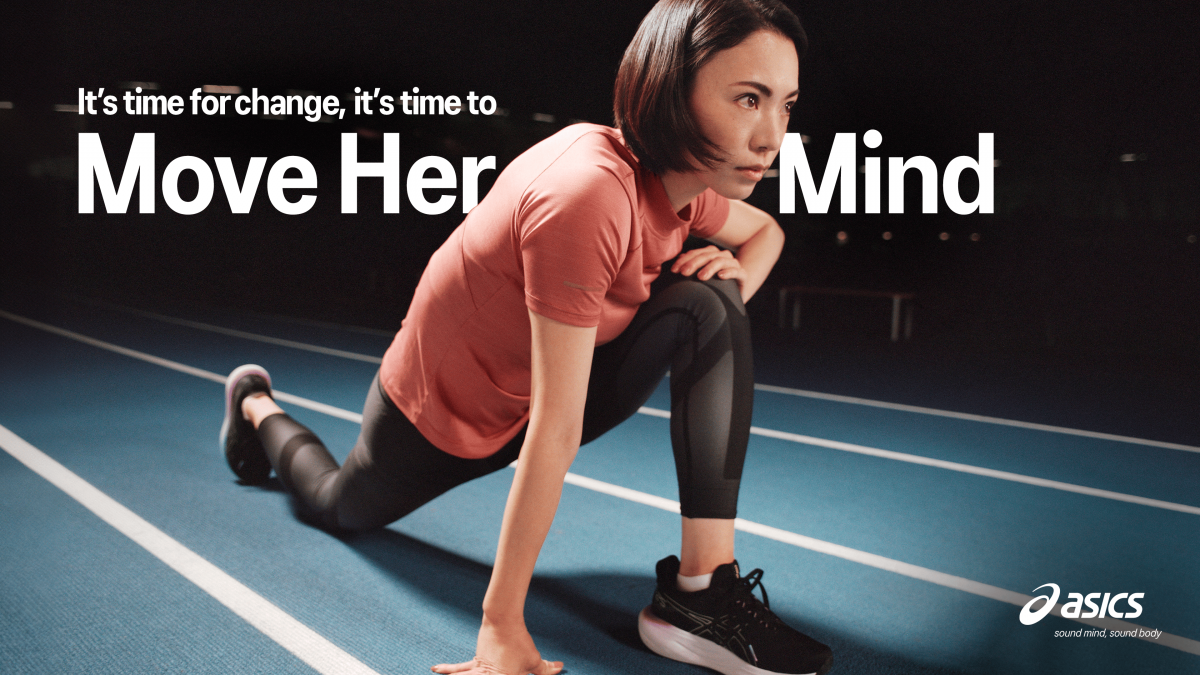London-based academic Brendon Stubbs helps shine a light on the international 'gender exercise gap'
A headline-grabbing international study on the ‘gender exercise gap’ was prepared by Brendon Stubbs, an academic physiotherapist based at the Institute of Psychiatry in London, who worked alongside study lead Dee Dlugonski from the University of Kentucky. In his research, Dr Stubbs has often focused on the relationship between physical and mental health, as well as healthy ageing.
The Japan-based company ASICS, which commissioned the study, launched a campaign today (27 February) titled Move Her Mind on a platform containing resources, activities and tips to support more women to move more often.
Dr Dlugonski, an assistant professor at the University of Kentucky’s Sports Medicine Research Institute, said: 'Our study showed that the gender exercise gap is a complex challenge which did not develop overnight. Given it has no sole cause, it will not be solved with one single solution – but when asked what could help, women noted that making movement more accessible, inclusive and recognised in all forms, while challenging society’s gendered expectations, would support them in moving more.’
Exercise initiatives must be ‘centred around women and their needs’, Dr Dlugonski noted: ‘From providing childcare and catering for all activity levels, to fitting around work, being fun, affordable, safe, welcoming and judgement-free. All these solutions – while small – can have a significant impact and our study uncovered thousands of individuals and organisations around the world who are already driving change.’
Physical health linked to mental health
More than 25,000 people took part in the study, which ran from June to September 2023. ASICS says the findings are based on the ‘biggest study of its kind’; data were gathered from people who participated in 26 focus groups run by independent facilitators in a variety of countries, while 24,772 people in more than 40 countries completed an online survey.
The findings show that women’s exercise levels are closely linked to their mental health, with respondents saying they are 52 per cent happier, 50 per cent more energised, 48 per cent more confident, 67 per cent less stressed and 80 per cent less frustrated when exercising.
When asked what could help, women noted that making movement more accessible, inclusive and recognised in all forms, while challenging society’s gendered expectations, would support them in moving more [Dee Dlugonski]
However, more than over half of them said they were either dropping out or stopping exercise completely, and that this was having a negative impact on their state of mind. Many are unhappy with their exercise levels. Barriers to exercise included time pressures (74 per cent), low self-confidence (35 per cent), intimidating environments (44 per cent) and 'not feeling sporty enough’ (42 per cent). Six mothers in 10 (61 per cent) cited motherhood as being the primary reason for them dropping out of doing regular exercise or sport altogether.
Men's misperceptions spotlighted
Interestingly, men’s perceptions of the challenges facing women were generally wide of the mark. While one man in three (34 per cent) suggested that a lack of time was a barrier to women exercising, three women in four (74 per cent) cited the issue. Many men (58 per cent) identified body insecurities as the leading problem, compared to 36 per cent of women. In fact, of the top five barriers to exercise perceived by men, only one (costs) featured in the list of most common obstacles reported by women.
The researchers found that more than a third of women say their friends are their most important exercise influencers, noting that they’re more motivated to exercise by women like themselves, rather than celebrities. When asked why they would exercise, women universally cited their mental (92 per cent) and physical health (96 per cent), rather than aesthetics.
Case study
Karen Guttridge set up a running group for women over women aged 50-plus to plug a gap locally. Expecting five to turn up for the first session, she was overwhelmed when more than 70 like-minded women did so.
Offering running programmes for women at all exercise levels in an inviting, safe and judgement-free space, the group has been an overwhelming success and supported many women to move and feel confident in doing so.
Tomoko Koda, ASICS managing executive office, said the company was founded on the belief that sport and exercise benefit the body and the mind. ‘It’s why we’re called ASICS: “Anima Sana in Corpore San” or “Sound Mind in a Sound Body”.'
Mr Koda added: ‘By launching Move Her Mind, we hope to give these remarkable people a platform, to connect and inspire others, so everyone can achieve a sound mind in a sound body. It’s time more women and girls experience the positive physical and mental benefits of exercise. It’s time for change.’
Author: I A McMillanShare it with















